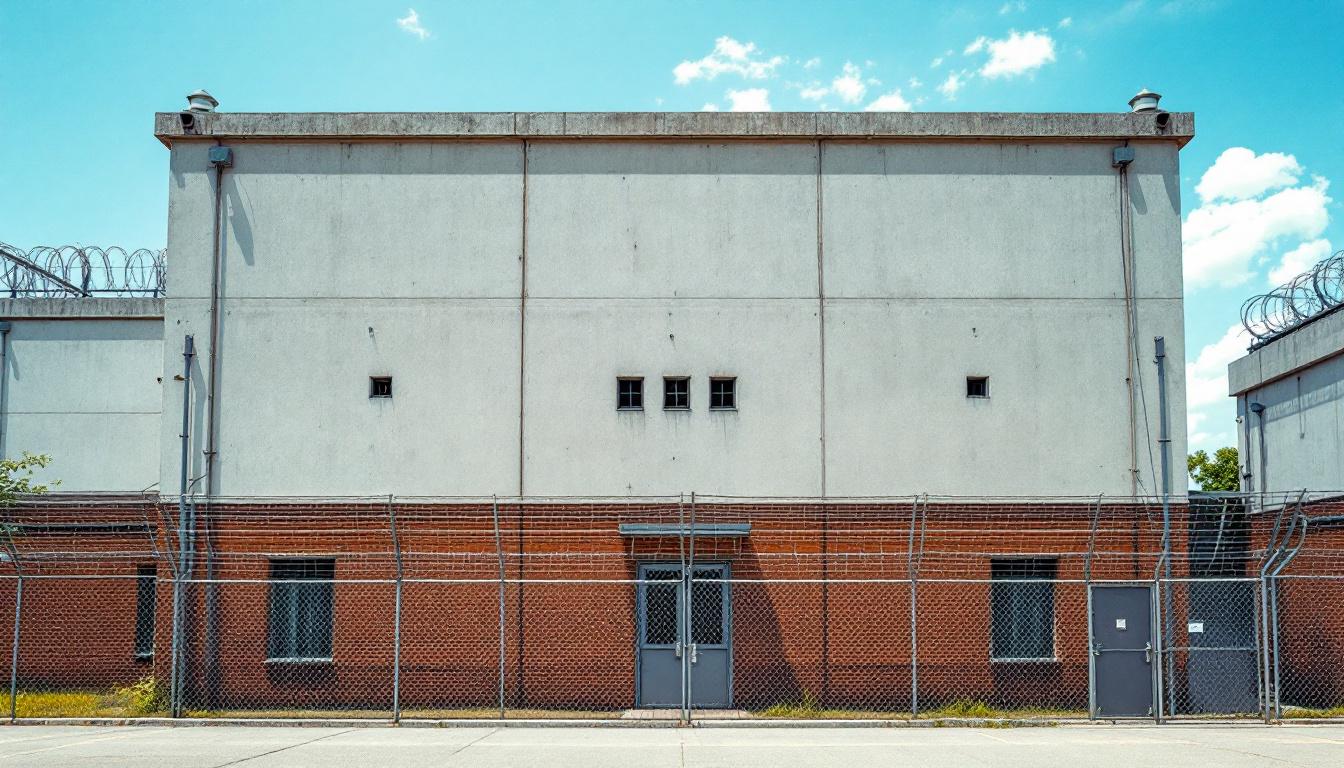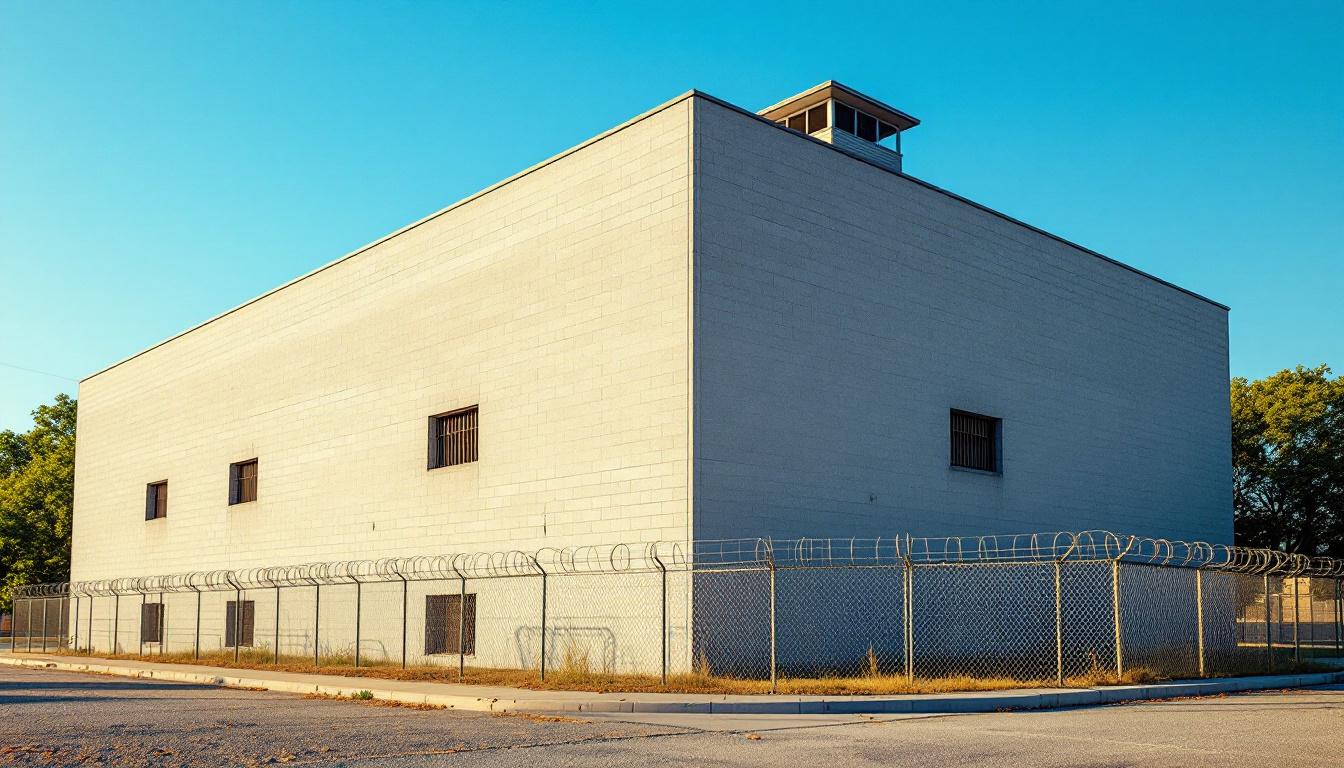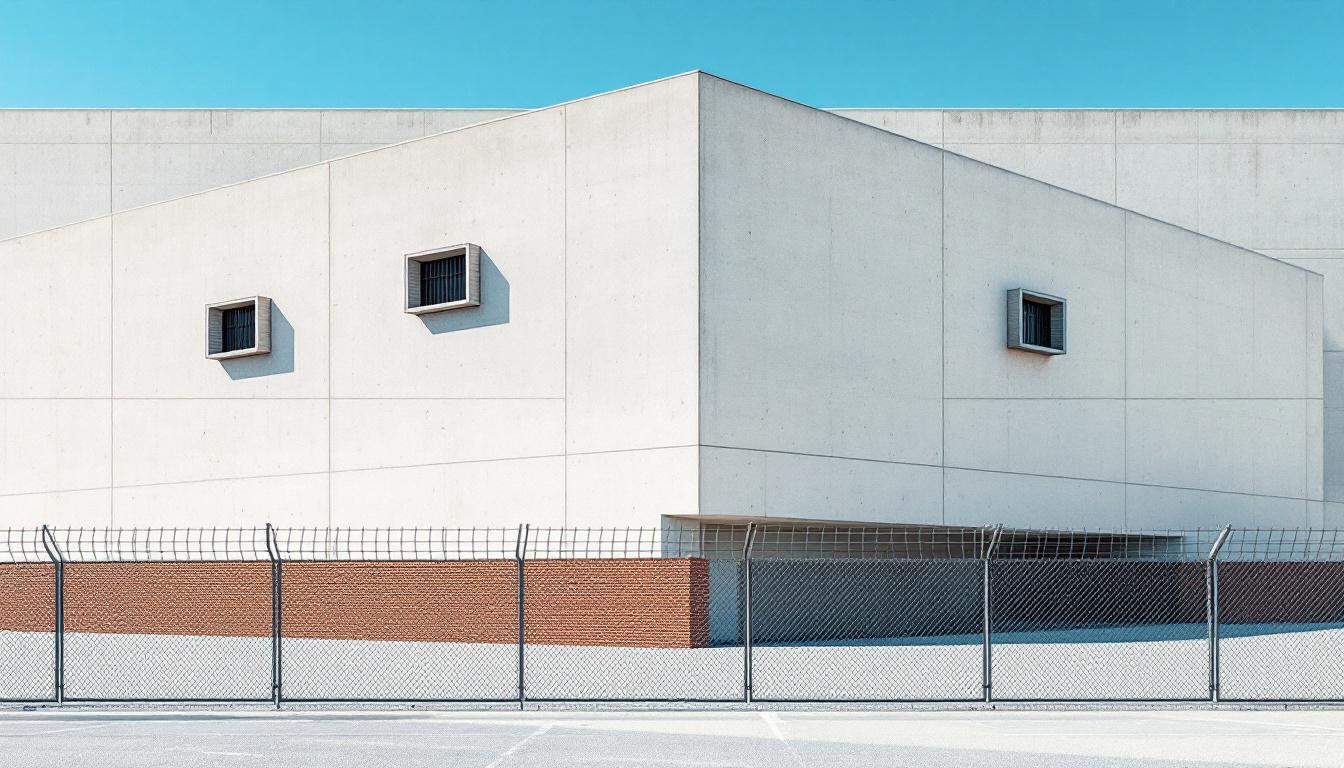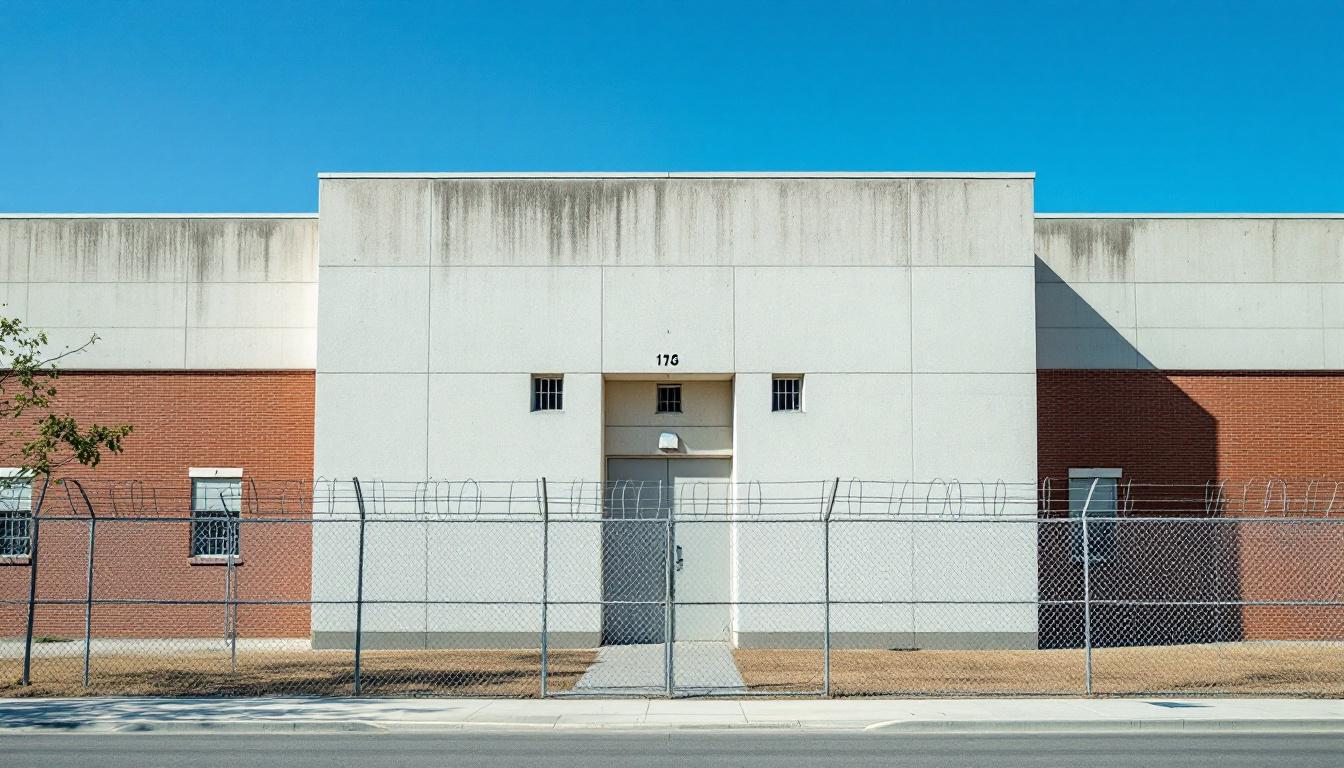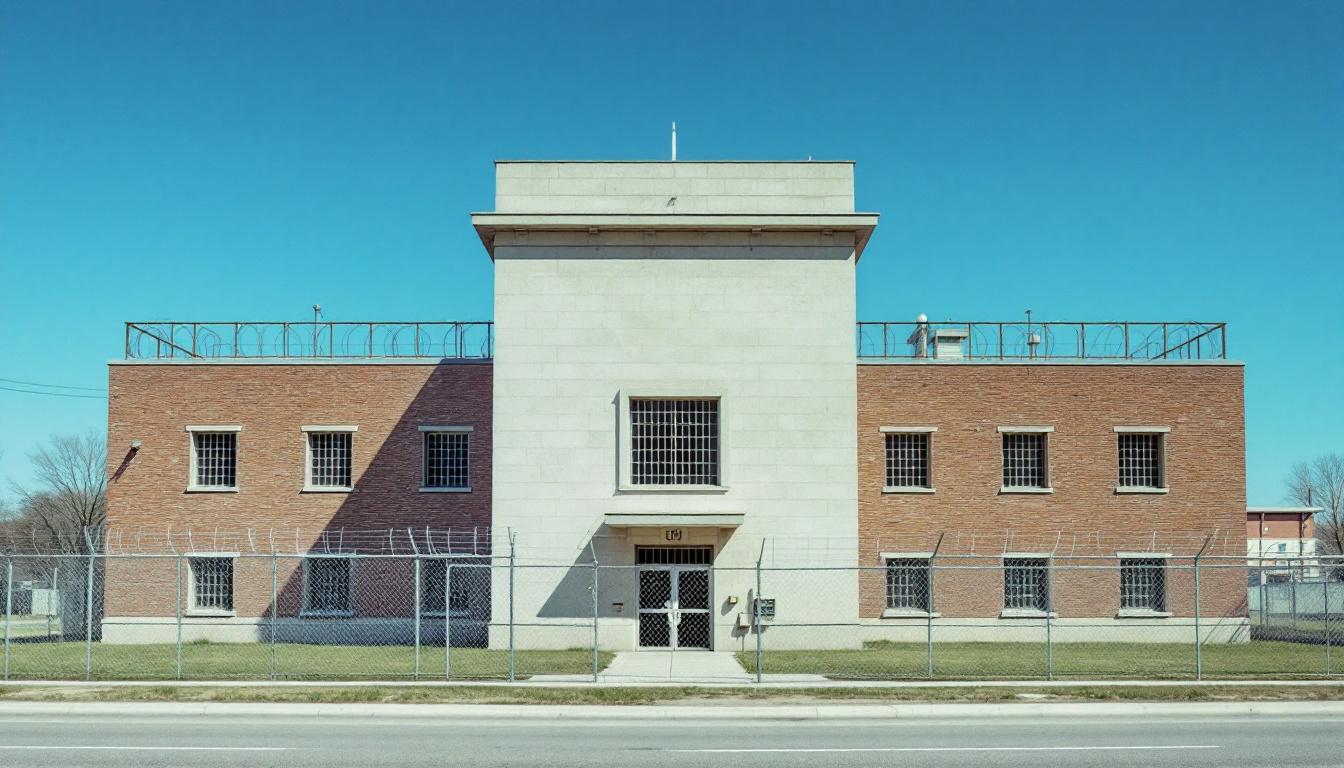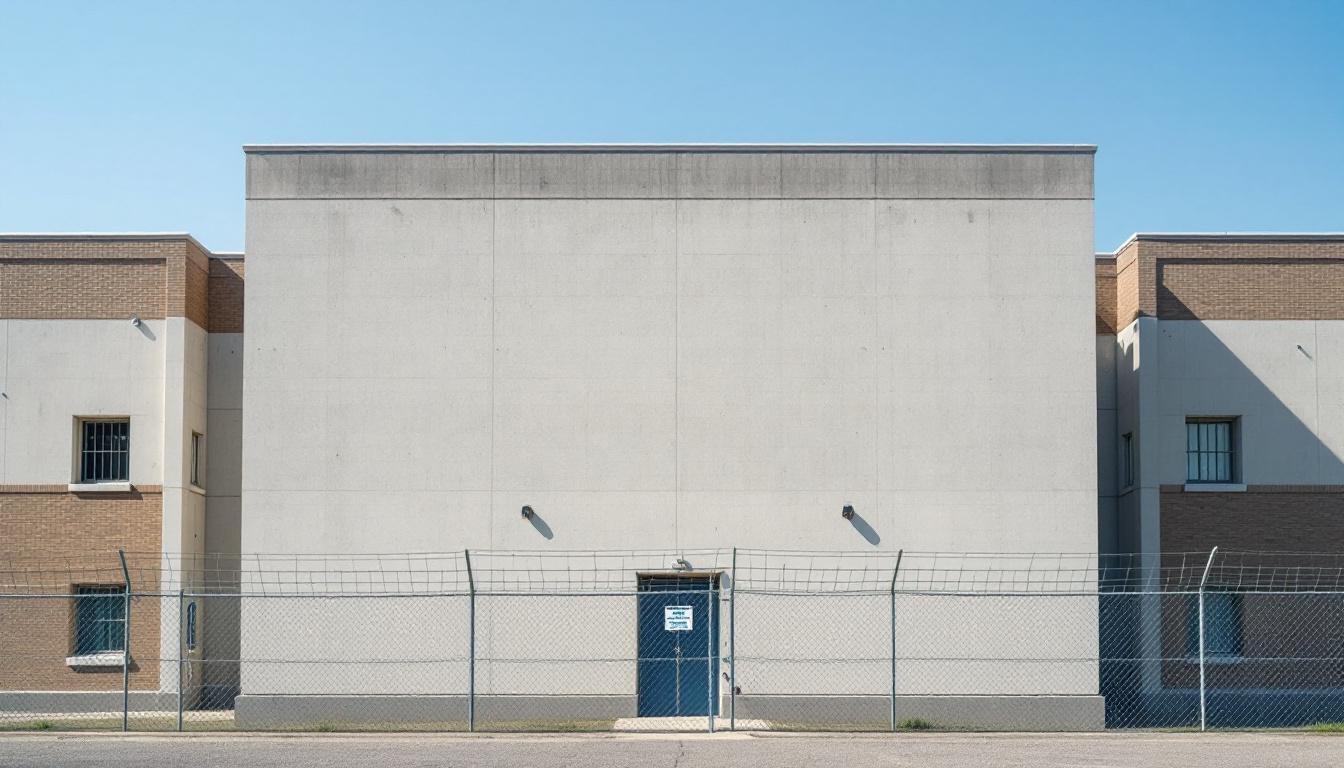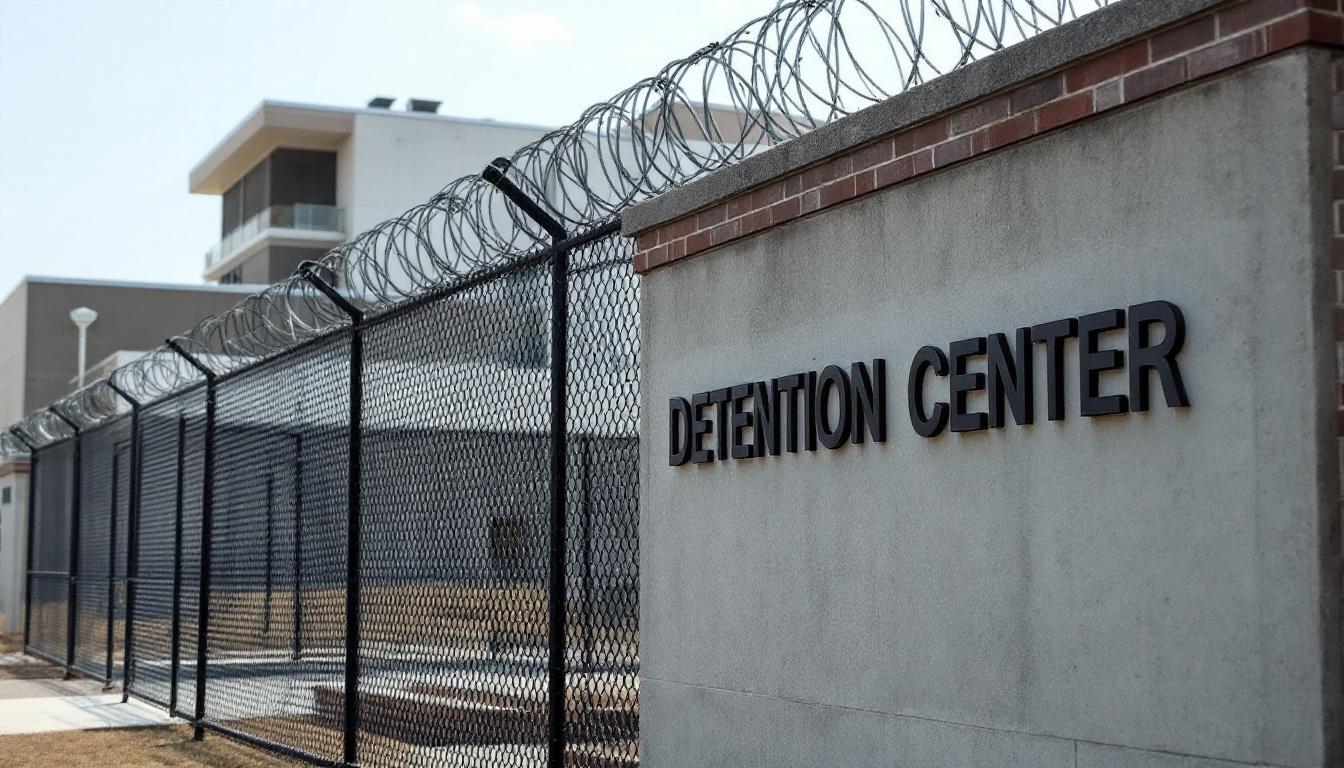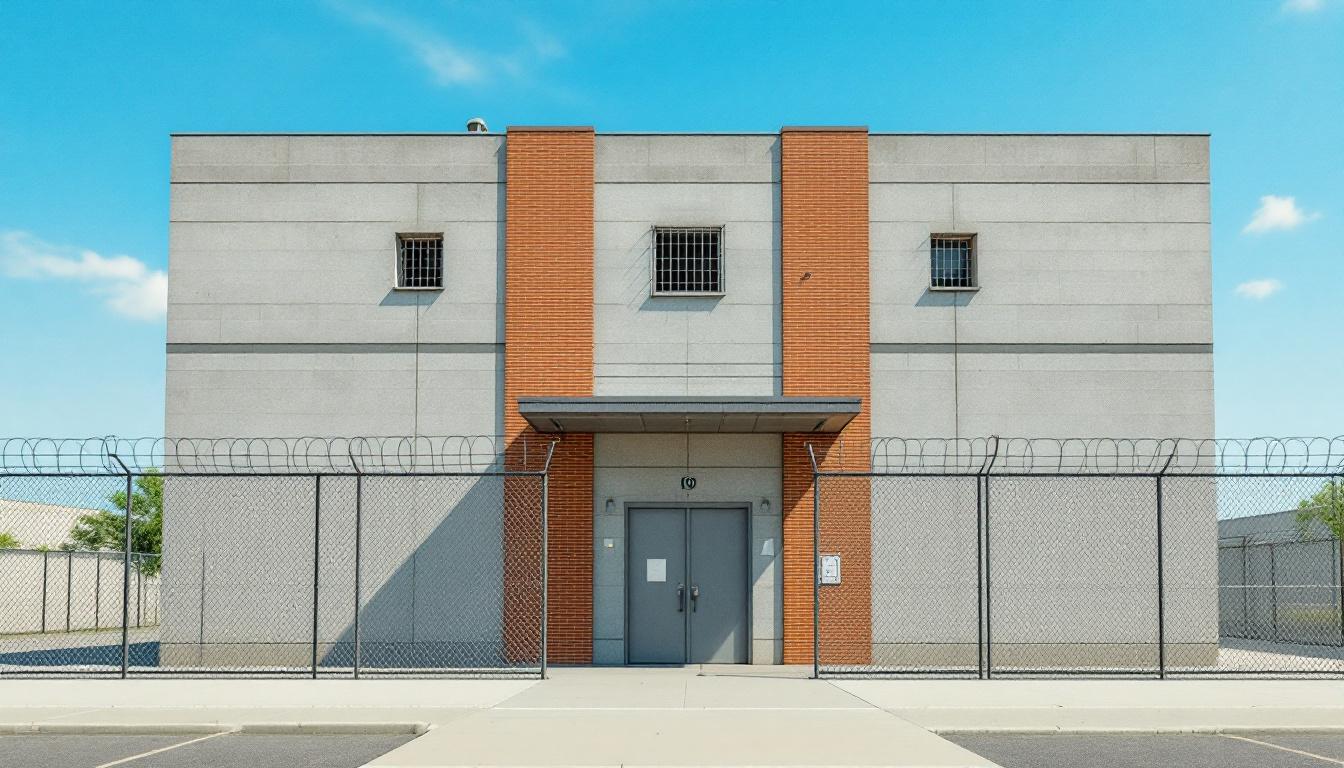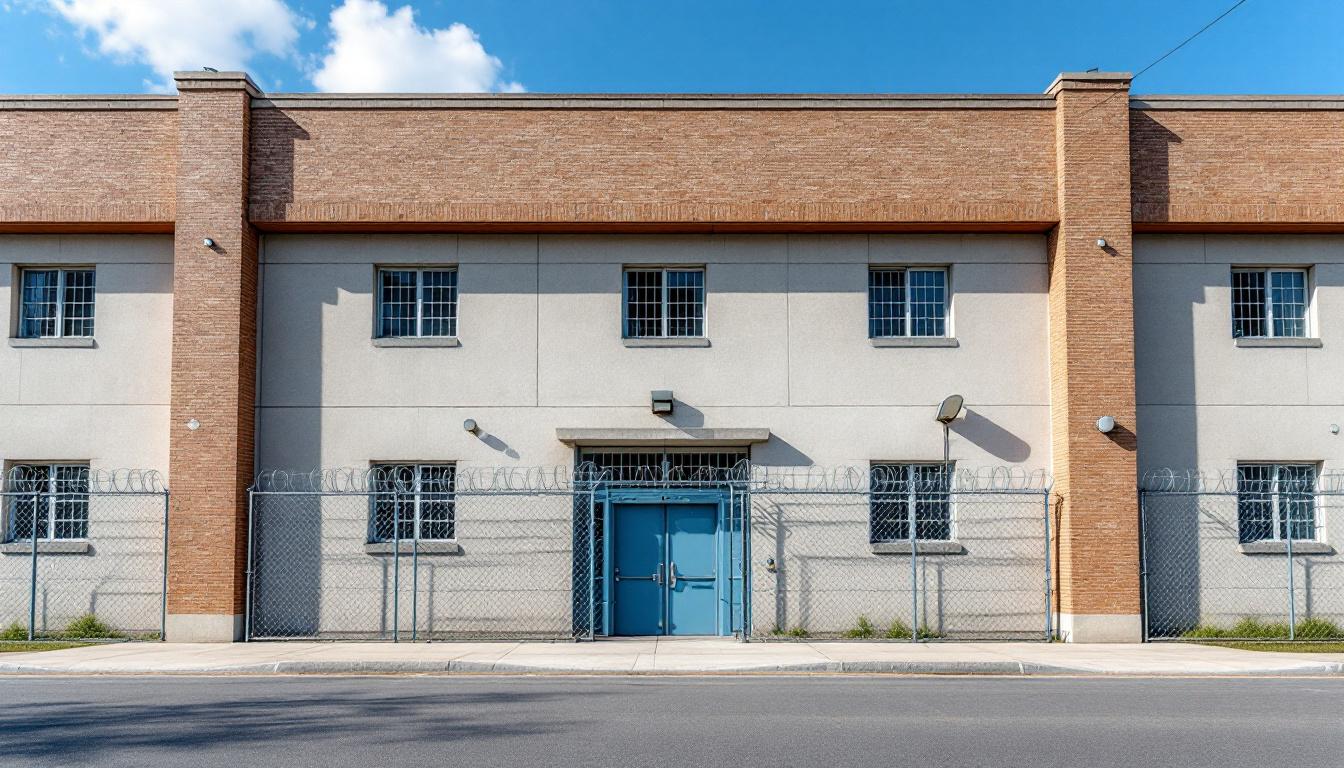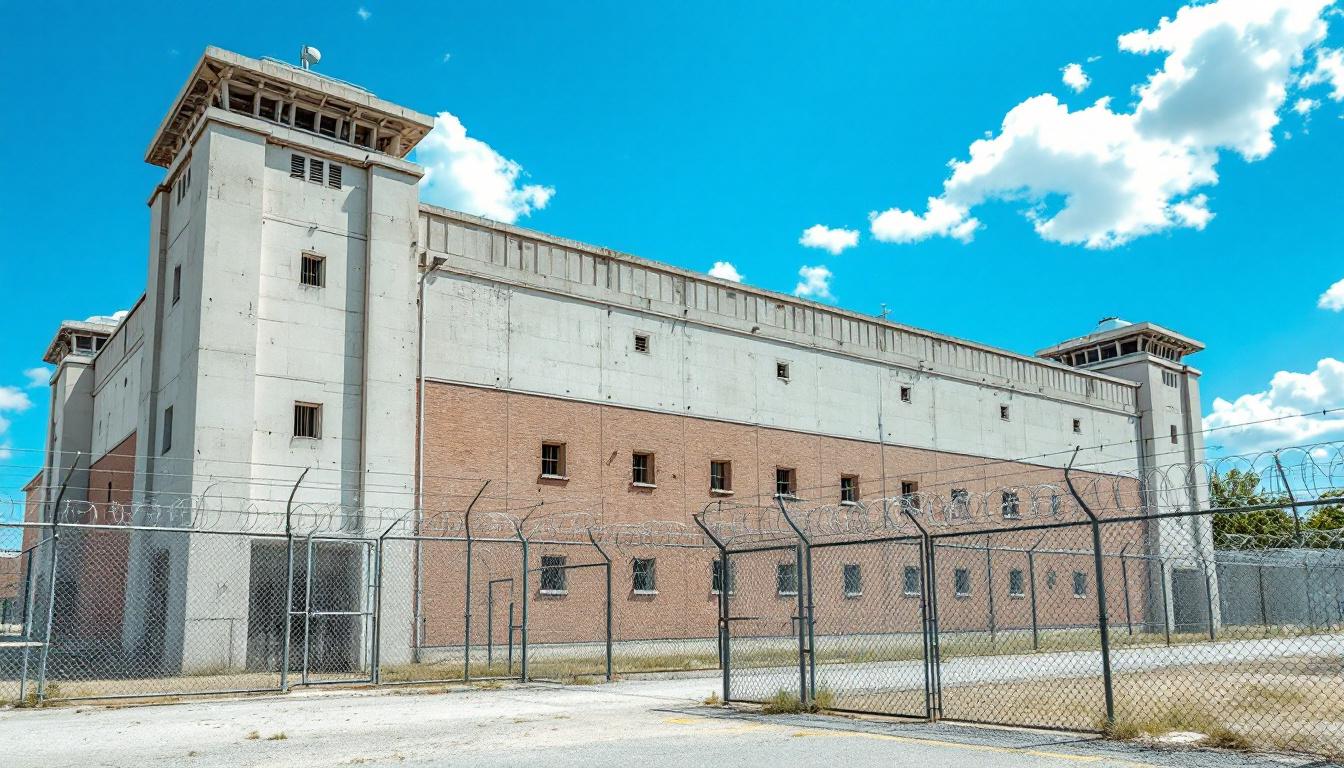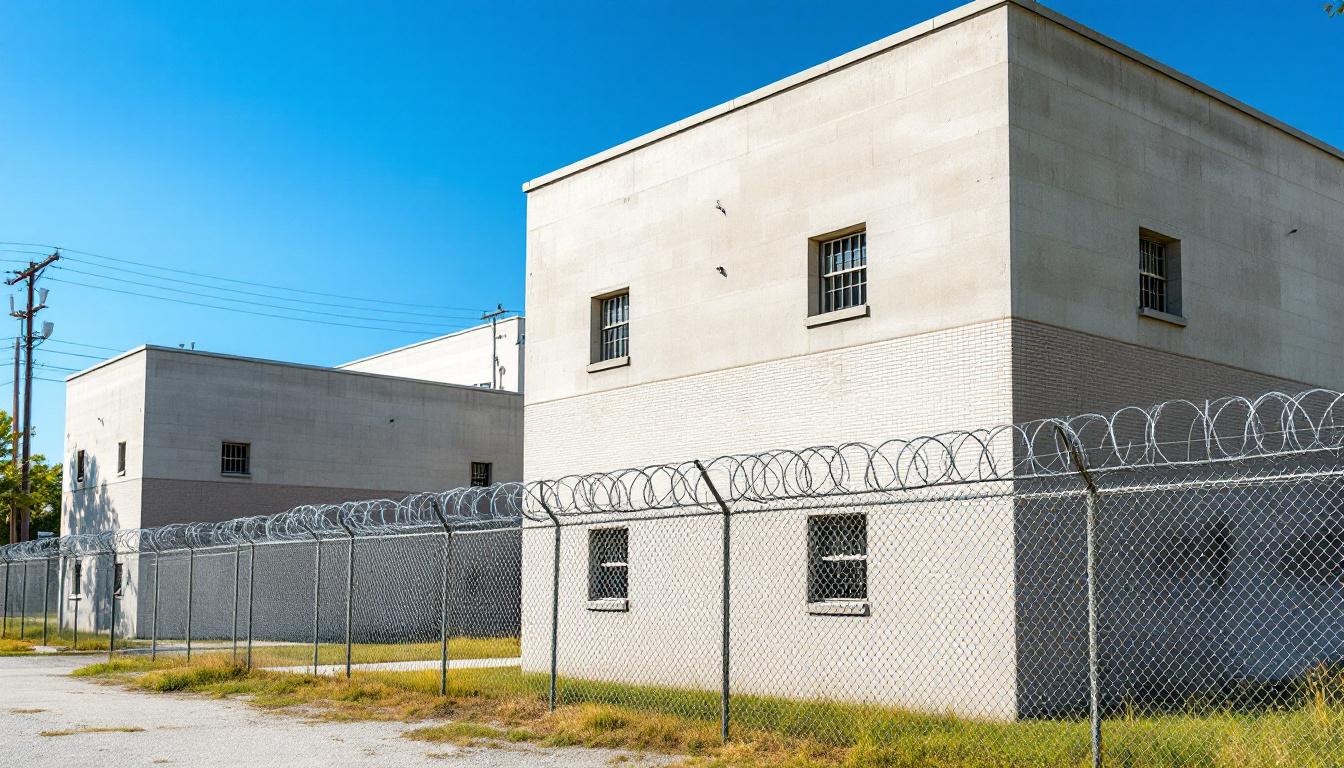
Quick Navigation
How to contact an inmate at Roanoke River Correctional Institution
This comprehensive guide will walk you through how to connect with an inmate at Roanoke River Correctional Institution. Follow the steps below to find an inmate and send letters and photos:
- Search for the inmate using our search tool below
- Create your account or log in to Penmate
- Write your message (up to 6,000 characters)
- Send instantly - inmates receive printed copies daily
Find an Inmate
Search for an inmate to start communicating today
Tip: You can search by first name, last name, or inmate ID number
To contact a person at Roanoke River Correctional Institution start by searching for the person on the official facility website. Perform a search by following these steps:
- Step 1: Enter their first name and last name into the search form and click "Search"
- Step 2: Locate their inmate record
- Step 3: Write down their Inmate ID and any housing information provided
Important! Be sure to enter the person's full name. Nicknames should not be used.
How to Send Messages to Inmates

You can use your phone or computer to send emails, letters, and photos to an inmate. Messages are sent electronically to inmate tablets or kiosks at the facility. If you would like to send a message, start by searching for an inmate at Roanoke River Correctional Institution.
Sending Photos and Postcards

A great way to send love and support to a loved one at Roanoke River Correctional Institution is to send photos and postcards. It only takes a few minutes to send photos from your phone and it makes a huge difference. You can also mail postcards with words of support and inspiration, or design your own postcard for special moments like birthdays and holidays.
Important! Be sure not to send any explicit photos or they may not be approved by the facility. You can also use a photo printing app like Penmate to make sure your photos are printed at the correct size (4x6 or 3x5) and are mailed according to the rules and regulations of Roanoke River Correctional Institution.
Frequently asked questions about Roanoke River Correctional Institution
-
How long does it take to deliver a message?
If you're sending an email message your letter is usually delivered within 24-48 hours. For messages sent via mail you should expect delivery within 3-7 days. All messages will need be approved by Roanoke River Correctional Institution.
-
How much does it cost to send a message to Roanoke River Correctional Institution?
You can send a message free using your phone or mail a message via USPS for the price of a $0.60 stamp and envelope. You can also purchase credits or e-stamps from services starting at $1.99.
-
What services can I use to contact an inmate at Roanoke River Correctional Institution?
Penmate
You can use Penmate to send letters and photos to an inmate from your phone. It's an easy way to stay in touch during your loved one's incarceration. Use the inmate locator to find an inmate's location and contact information, then you can send messages within a few minutes.
Securus messaging
Securus may be another option for communicating with an inmate at Roanoke River Correctional Institution. You can create a friends and family account and purchase credits to send messages. All messages will be reviewed and must be approved by the facility.
JPay
Some county jails and state prisons may support sending messages with JPay. You must register an account with the system, find your loved one, and purchase stamps to send messages. For some locations you can also attach photos.
Smart Jail Mail
You may also check if Smart Jail Mail is available at Roanoke River Correctional Institution. Smart Jail Mail is operated by Smart Communications and has contracted with some state and county jails. After purchasing credits, your messages and photos are sent to the facility, printed out, and then handed out to your loved one.
-
What is the mailing address of Roanoke River Correctional Institution?
Mailing address:
Roanoke River Correctional Institution
2787 Caledonia Dr
Tillery, NC 27887
Phone: (252) 826-5621Business hours:
- Monday: Open 24 hours
- Tuesday: Open 24 hours
- Wednesday: Open 24 hours
- Thursday: Open 24 hours
- Friday: Open 24 hours
- Saturday: Open 24 hours
- Sunday: Open 24 hours
-
What are the visiting hours at Roanoke River Correctional Institution?
Visiting hours at Roanoke River Correctional Institution vary by housing unit and security level. Generally, visits are scheduled on weekends and holidays, with some facilities offering weekday visits. Contact the facility directly at (252) 826-5621 or check their website for the current visiting schedule. Visits typically last 30-60 minutes and must be scheduled in advance.
-
What items are prohibited when sending mail to Roanoke River Correctional Institution?
Prohibited items typically include: cash, personal checks, stamps, stickers, glitter, glue, tape, staples, paperclips, polaroid photos, musical or blank greeting cards, hardcover books, magazines with staples, and any items containing metal or electronics. Only send letters on plain white paper with blue or black ink. Photos must be printed on regular photo paper (no Polaroids). Always check with Roanoke River Correctional Institution for their specific mail policies.
-
How do I send money to an inmate at Roanoke River Correctional Institution?
You can send money to an inmate at Roanoke River Correctional Institution through several methods: 1) Online using JPay, Access Corrections, or the facility's approved vendor, 2) Money orders mailed directly to the facility with the inmate's name and ID number, 3) Kiosks located in the facility lobby, or 4) Over the phone using a credit or debit card. Fees vary by method, typically ranging from $2.95 to $11.95 per transaction.
-
Can I schedule a video visit with an inmate at Roanoke River Correctional Institution?
Many facilities now offer video visitation as an alternative to in-person visits. At Roanoke River Correctional Institution, video visits may be available through services like Penmate, Securus Video Connect, GTL, or ICSolutions. Video visits typically cost $10-20 for 20-30 minutes and must be scheduled in advance. You'll need a computer or smartphone with a camera and reliable internet connection. Contact the facility for their specific video visitation policies and approved vendors.
-
What identification do I need to visit an inmate at Roanoke River Correctional Institution?
All visitors must present valid government-issued photo identification such as a driver's license, state ID, passport, or military ID. Minors must be accompanied by a parent or legal guardian who can provide the minor's birth certificate. Some facilities require visitors to be on the inmate's approved visitation list, which may require a background check. Contact Roanoke River Correctional Institution for specific ID requirements and visitor approval procedures.
-
How can I find out an inmate's release date?
To find an inmate's release date at Roanoke River Correctional Institution, you can: 1) Use the online inmate search tool if available, 2) Call the facility's records department, 3) Contact the inmate's case manager or counselor, or 4) Have the inmate provide this information during a call or visit. For privacy reasons, some facilities only release this information to immediate family members.
Facility Overview
Contact Information
Roanoke River Correctional Institution2787 Caledonia Dr
Tillery, NC 27887
Phone: (252) 826-5621
Official Website
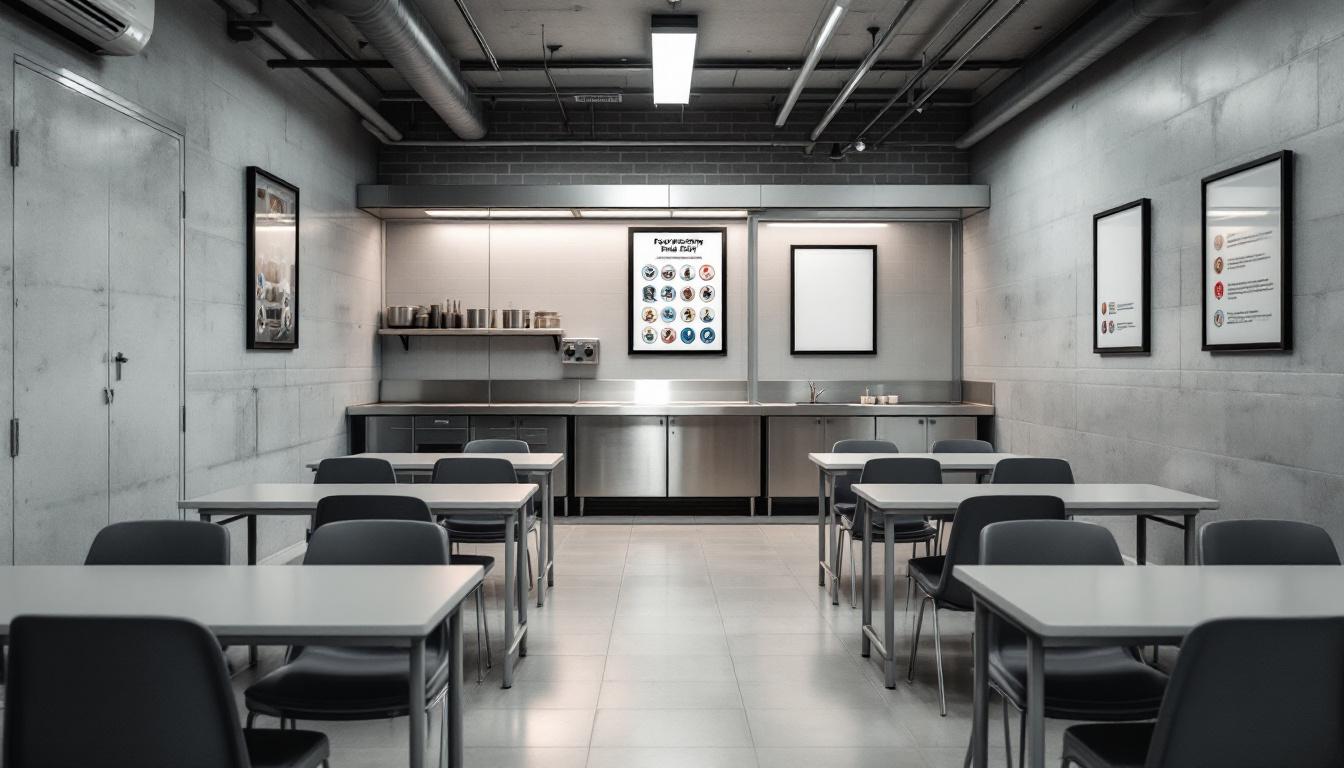
About Roanoke River Correctional Institution
Since 1892, the agricultural operations at Roanoke River Correctional Institution have contributed to North Carolina's correctional system while providing meaningful work opportunities for incarcerated individuals. Located in Halifax County on approximately 7,500 acres of farmland, this facility maintains extensive agricultural programs that support prison kitchens across the state. The institution operates a comprehensive farm system under Correction Enterprises management, including a poultry-laying operation and row crop cultivation of corn, wheat, and soybeans, along with 300 acres dedicated to sweet corn, collard greens, sweet potatoes, squash, cucumbers, and melons.
The facility's 12,770-square-foot cannery processes and preserves crops grown on-site, with the capability of canning approximately 500,000 gallons of commodities annually for distribution throughout the state prison system. Beyond agricultural work, individuals may be assigned to various positions including maintenance, janitorial duties, food service, barbering, grounds keeping, and recreation support. The institution also provides labor contract opportunities for local government projects, creating connections between the facility and surrounding communities.
Educational and rehabilitative programming at Roanoke River Correctional Institution includes vocational training through Halifax Community College in areas such as cooking, block masonry, small engine repair, electrical wiring, commercial cleaning, and plumbing. Academic opportunities encompass adult education classes and GED preparation, while self-help programs address substance abuse, stress management, and personal development. The facility typically offers support groups including Narcotics Anonymous, Alcoholics Anonymous, and DART aftercare programming to assist individuals in preparing for successful community reintegration.
Programs & Services
Through its partnership with Halifax Community College, Roanoke River Correctional Institution (formerly Caledonia Correctional Institution) provides inmates with hands-on vocational training in essential trades including cooking, block masonry, small engine repair, electrical wiring, commercial cleaning, and plumbing. These skill-building programs work alongside the facility's extensive agricultural operations, where inmates gain practical experience through farm work, cannery operations, and food production that serves correctional facilities statewide.
Educational opportunities extend beyond vocational training to include adult education classes and GED preparation programs, helping inmates build foundational academic skills. The facility typically offers various self-help and rehabilitation programs addressing substance abuse, stress management, and personal development. Inmates may participate in Narcotics Anonymous and Alcoholics Anonymous meetings, along with DART aftercare programming and minimum custody readiness preparation designed to support successful reintegration.
Work assignments at the facility often include agricultural crews, maintenance duties, food service positions, and specialized roles such as barber services and recreation support. Inmates may also participate in labor contracts and manual work projects for local government entities, providing valuable work experience while contributing to community needs. The facility's comprehensive approach combines practical job training, educational advancement, and therapeutic programming to support inmates' preparation for eventual release and community reentry.
Daily Life & Visitation
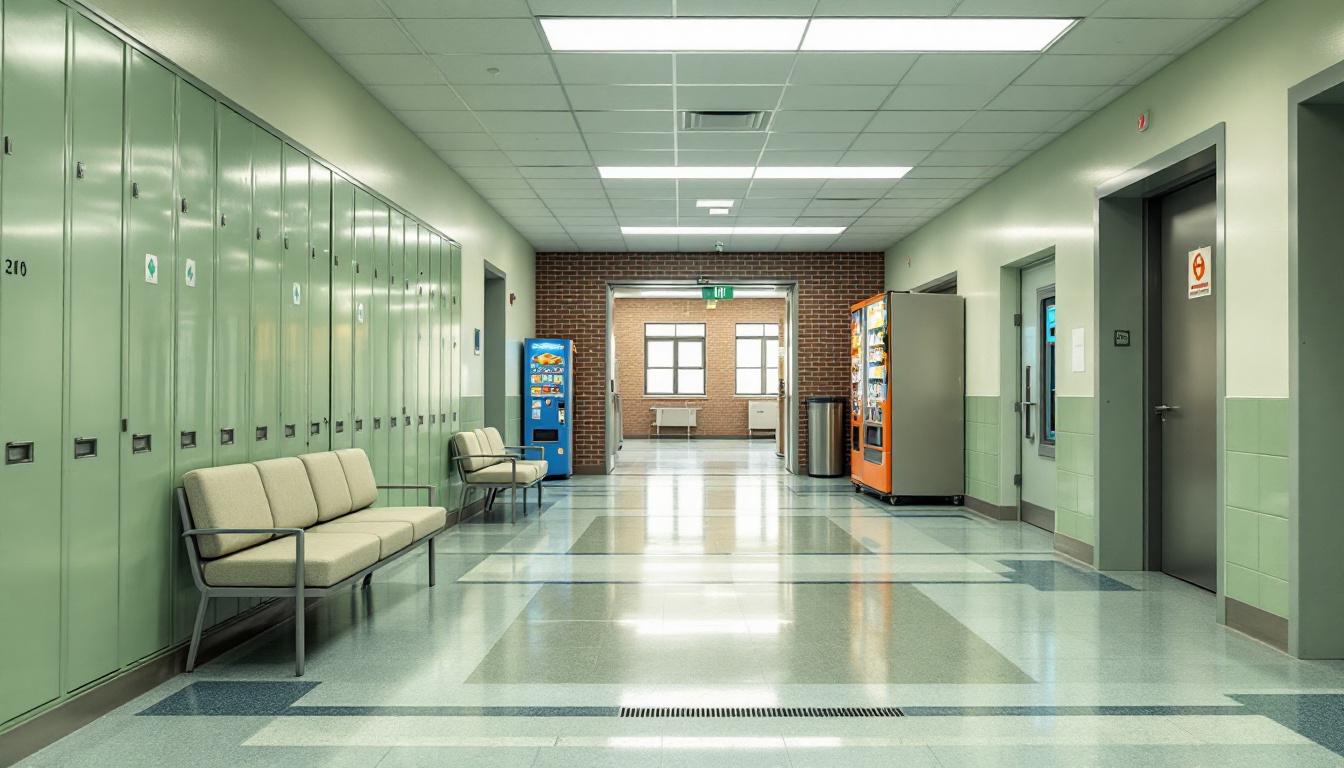
The agricultural focus at Roanoke River Correctional Institution shapes much of the daily rhythm for incarcerated individuals, with many beginning their workdays before dawn to tend to the facility's extensive farming operations. Those assigned to the poultry-laying operation typically start early morning shifts, while others may be scheduled for row crop cultivation or vegetable farming duties across the facility's 5,500 acres of cultivated farmland. Work assignments often rotate between outdoor agricultural crews and indoor positions such as the cannery operation, where individuals process and can the crops grown on-site for distribution throughout the state prison system.
Educational and programming opportunities are typically integrated into the daily schedule, with Halifax Community College providing vocational training in areas like cooking, block masonry, small engine repair, and electrical wiring. Individuals may attend adult education classes or GED preparation sessions during designated times, often scheduled around work assignments. Self-help programs including substance abuse counseling, Narcotics Anonymous, and Alcoholics Anonymous meetings are generally available on a regular basis, providing structured programming that supports rehabilitation goals.
Living arrangements at the facility likely follow standard dormitory or cell-based housing, with daily routines including scheduled meal times in the dining hall, recreational periods, and evening programming. Visitation policies typically allow approved family members and friends to visit on designated days, though specific scheduling may vary based on housing assignments and security levels. Communication with the outside world generally includes monitored phone calls and correspondence, helping individuals maintain important family connections while serving their sentences at this historically significant agricultural facility in Halifax County.
Ready to Connect?
Start communicating with your loved one today
Search for an Inmate
